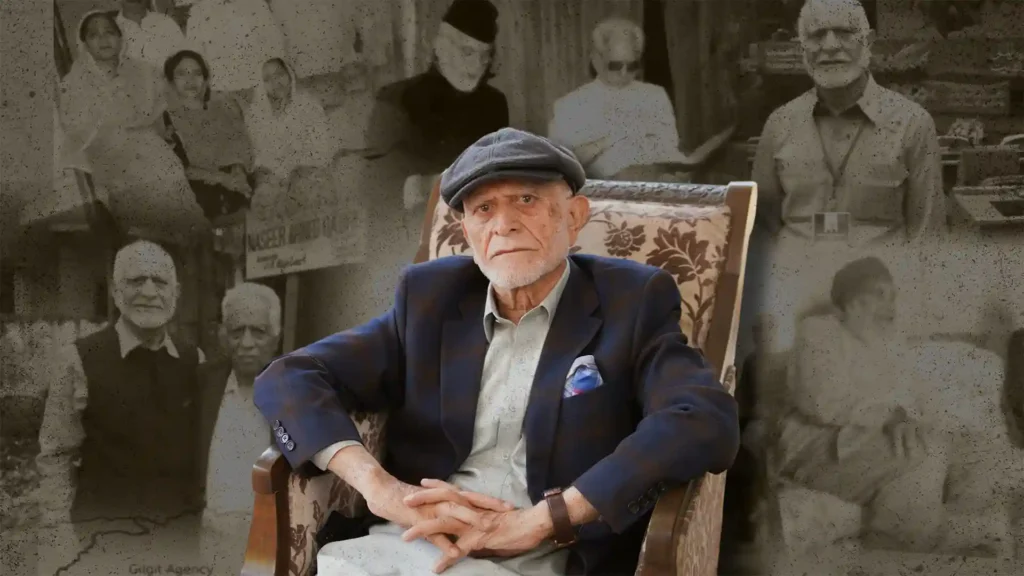Justice (R) Syed Manzoor Hussain Gillani is a distinguished jurist, author, and public intellectual who has served in some of the highest offices of Azad Jammu & Kashmir, including Advocate General, Chief Justice of the Supreme Court, and Election Commissioner. Born in Teetwal, a region now under Indian control, his life has been deeply shaped by the political upheavals of the subcontinent, marked by migration, memory, and a lifelong engagement with justice and identity. Educated at Baramulla Degree College and Aligarh Muslim University, Justice Gillani’s journey mirrors the story of Kashmir itself: divided by borders, but united in spirit. In this exclusive interview with The Kashmir Link, he reflects on his remarkable life — from childhood displacement and legal triumphs to lost friendships, painful reunions, and his enduring hope for peace in the region.
Early Years, Displacement, and Return
TKL: Justice Gillani, thank you for speaking with us. Can you start by telling us about your early life and how it was shaped by the partition?
Justice (R) Manzoor Hussain Gillani: I was born in 1946 in the Teetwal area of Kashmir. In 1947–48, when the partition created new borders, my parents migrated to what is now Azad Kashmir. I was very young, so I came along. Later, my maternal grandmother took me back to the Indian-controlled part of Kashmir. That’s where I was raised — primarily in Baramulla and Srinagar at my aunt’s house.
Education and Turning Points
TKL: You’ve had an exceptional academic and professional journey. How did it begin?
Justice (R) Syed Manzoor Hussain Gillani: I did my graduation from Baramulla Degree College, then studied law at Aligarh Muslim University. Initially, I wanted to be a teacher — even enrolled in economics — but my professors advised me to switch to law. That decision changed the course of my life.
Crossing Borders and Careers
TKL: You were practicing in India before 1976. How did you come to settle in Pakistan?
Justice (R) Syed Manzoor Hussain Gillani: I came to visit my parents in 1976. But the political situation was tense, and I couldn’t return. So I started my legal career here. Over time, I served as Advocate General, Chief Justice of the Supreme Court of AJK, and Election Commissioner. All of this was by Allah’s grace.
Painful Borders, Lost Friendships
TKL: You’ve spoken about emotional connections across the LoC. How do those bonds affect you today?
Justice (R) Syed Manzoor Hussain Gillani: Deeply. My childhood, youth, friends — they’re all on the other side. After 2014, communication almost stopped. People are afraid to talk. It hurts when you can’t even call an old friend without risking their safety.
A Memorable Reunion
TKL: Tell us about your reunion with an old friend in Poonch — it sounds extraordinary.
Justice (R) Syed Manzoor Hussain Gillani: Indeed. In 2015, I attended a Bar Association event in Poonch. There, a Sikh man spoke of his old friend from Aligarh named “Manjoor Gilani.” I realized he was talking about me, his classmate, Brij Mohan Joshi. We embraced like long-lost brothers. That was one of the most emotional moments of my life.
Reflections on Justice, Reform, and Aspirations
TKL: What would you say are the key reforms needed in the judiciary?
Justice (R) Syed Manzoor Hussain Gillani: We need more judges, better training, and ethical hiring, free from political interference. Judges shouldn’t serve in their hometowns due to the potential for undue pressure. Cross-border judicial exchanges could also help enhance quality.
On Family, Legacy, and Final Wishes
TKL: What has family life meant to you through this journey?
Justice (R) Syed Manzoor Hussain Gillani: I married within my family. My wife is my cousin, and we’ve had a beautiful life together. We have three children — one is a lawyer, and two are in IT, one of whom lives in the US. My daughters are also well-settled. Alhamdulillah, I’ve been blessed.
TKL: And finally, your last wish? Justice (R) Syed Manzoor Hussain Gillani: I hope to see the day when Kashmiris can travel freely between both sides. Borders should not divide hearts. I may live here now, but a part of me will always belong to that house in Teetwal — to the bed by the window, the cupboard with my childhood books.
